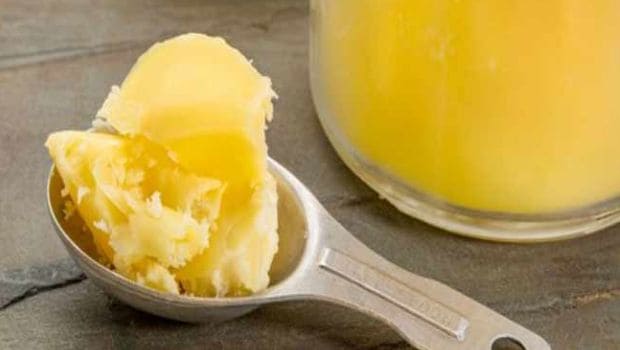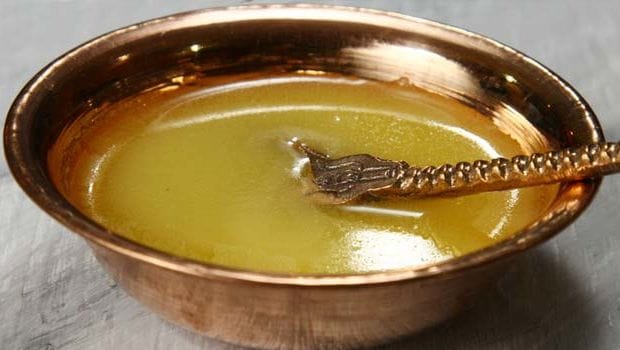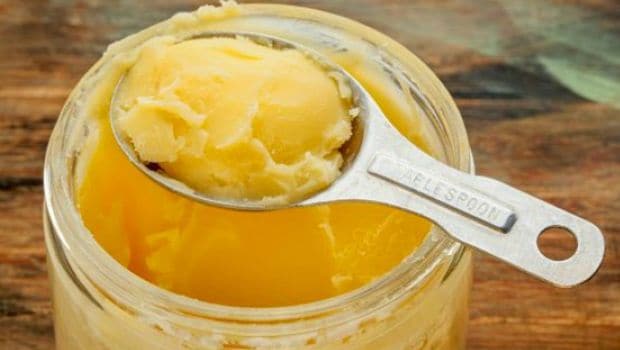Is Consuming Ghee In Summers Good For Your Health?

Desi gheemakes for an indispensable part of most Indian households. You may agree that a generous helping of ghee on rice, chapattis and dals made them taste amazing. In fact, our grandmothers swore by this greasy delight and used it in most ‘gharelu nuske‘. Desi ghee is made with cow or buffalo’s milk, and is generally churned at home by heating white butter or malai. In the Ayurveda wisdom, ghee is considered to be a rejuvenating ingredient that is used to cure most ailments. Ghee, an unprocessed fat is a rich source of omega-3 fatty acid along with vitamin-A, which helps to keep your body healthy. Its anti-inflammatory properties keep you free from various ailments.
While ghee is revered as one of the healthiest ingredients in the Indian kitchens and mostly enjoyed during winters, its edibility during summers is generally questioned. If you think ghee can only be enjoyed during winters, then you might be wrong. Here’s what our experts have to say.

Ghee, an unprocessed fat is a rich source of omega-3 fatty acid along with vitamin-A
According to Ayurvedic expert Dr. Dhanvantri Tyagi, “Ghee is loaded with healthy fats, and a human body needs some amount of fats to keep it going. This is why we recommend having ghee during hot days. Also, since our body gets dry in summer, consumption of ghee will help balance the internal moisture.”
According to Debjani Banerjee, HOD, Dietetics at PSRI Hospital, “Ghee is highly nutritious and consists of various nutritional benefits. It is rich in butyric acid that helps to improve our immune system. It also helps keep our body cool. I recommend taking half a spoon of ghee daily on an empty stomach in summers. This can improve digestive functions by stimulating secretion of gastric acids.”
As per the book, A Historical Dictionary of Indian Food by K.T. Acharya, in Ayurvedic terms, ghee is a ‘sweet food’ – it is strengthening, aids digestion and tempers the over-activity of all the three bodily doshas.
The best form of ghee that can be consumed during summers is prepared from cow’s milk, as it is sweeter in taste, cold in nature, light on stomach and makes for an excellent pacifier of aggravated vata dosha and pitta dosha. Pitta dosha is hot in potency by nature, and during summer this heat is aggravated causing heat related ailments in the body. For effective results, ghee should be added separately after cooking as foods cooked in ghee may have completely different effects.

Desi ghee is a ‘sweet food’ – it is strengthening, aids digestion
In fact, applying ghee directly on skin and hair may not only cure dryness problems, it may also help you get some sound sleep. Generally, it is said that raised levels of pitta dosha manifests disturbed sleep.
So, go on and add desi ghee to your food, and enjoy it in summers as much as you love it during winters.
[“source=food.ndtv”]